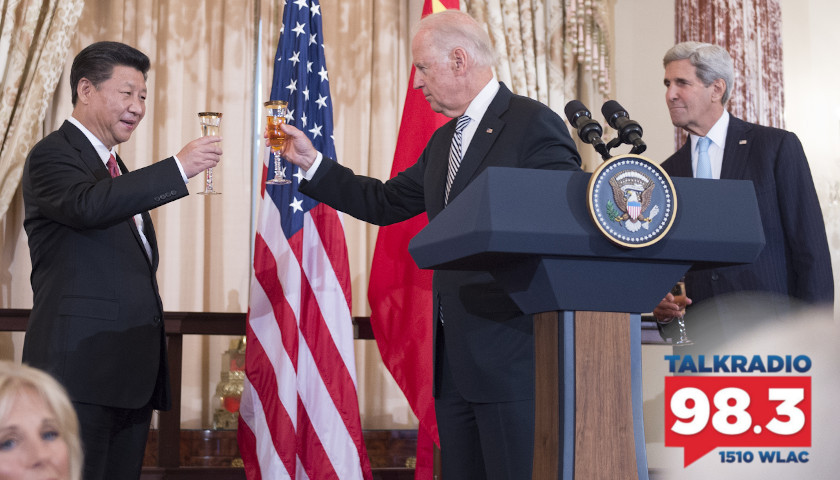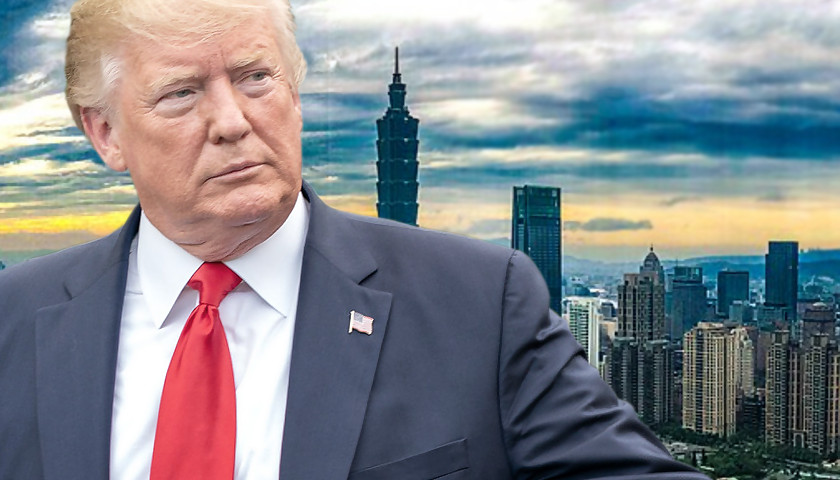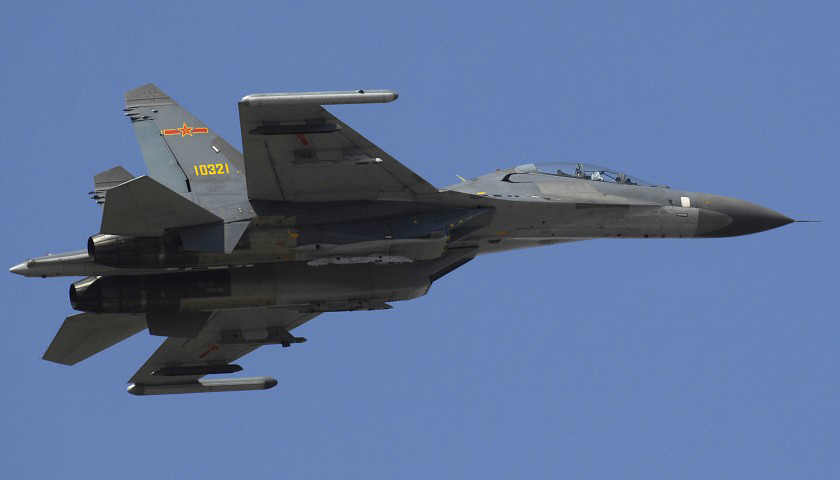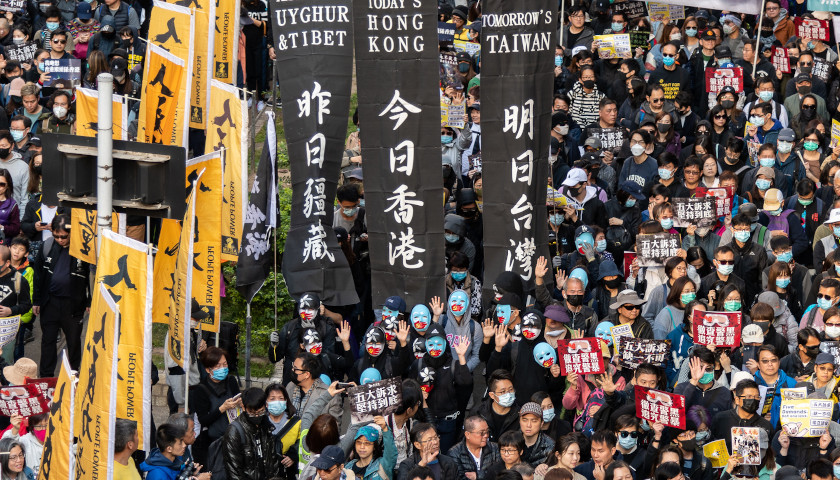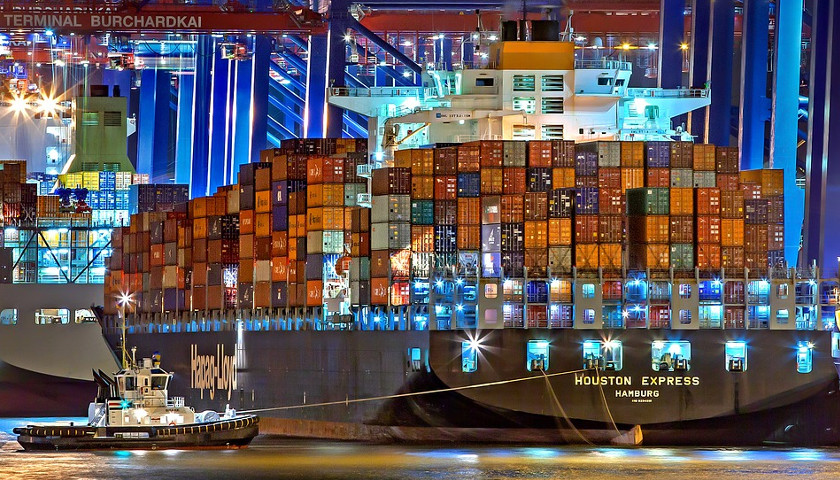Thursday morning on the Tennessee Star Report, host Michael Patrick Leahy welcomed author and Washington Times correspondent Bill Gertz to the newsmakers line to weigh in on the threat of China in a Biden administration.
Read the full storyTag: Taiwan
Commentary: Recognizing the Sovereignty of Taiwan Could be a Real October Surprise
President Trump has an opportunity to make his boldest moral, strategic, and catalyzing move yet, entirely in the interest of the American people and the free world: to recognize the Republic of China (i.e. Taiwan) as a sovereign nation. His administration has already taken significant steps to “bolster” Taiwan’s status. This move wouldn’t be so subtle. More than a Tweet; Trump could recognize the island nation, constantly harassed and illegitimately claimed by the CCP, before the United Nations. He could challenge democratic, freedom-loving allies and acquaintances to do the same, and in so doing, ascertain who exactly has the intestinal fortitude to call out the evil empire, and who is willing to subordinate their people to it in the decades to come. President Trump should remind our nuclear adversary why it is that the United States Navy’s Seventh Fleet routinely transits the Taiwan Strait and for whom, and that the United States of America remains a force for good in the world.
Read the full storyChinese Military Sends Warning to U.S., Taiwan With Fighter Jets
The Chinese military on Friday sent 18 planes including fighter jets flying over the Taiwan Strait — an apparent attempt to show its power and dominance over Taiwan, which is hosting U.S. Under Secretary of State for Economic Growth, Energy and the Environment Keith Krach, to Chinese disapproval.
Read the full storyCommentary: Is China Threatening Taiwan, Hong Kong While the U.S. Is Weighed Down by Pandemic, Recession and Riots?
Is China on the precipice of an aggressive expansion into Taiwan and Hong Kong while the U.S. is bogged down with the Covid-19 pandemic, the worst recession in a generation with more than 23 million jobs lost and riots over the police killing of George Floyd?
Amid the global response to the China-originated coronavirus, in January, Taiwanese President Tsai Ing-wen was reelected in a landslide, saying she supports the current political status of the island nation, which in her eyes is that Taiwan is so independent it doesn’t need to declare independence.
Read the full storyJeff Webb: Government Delay in Common Sense Advice to Wear Mask Due to Bureaucratic Confusion
Live from Nashville, Tennessee Friday morning on The Tennessee Star Report with Michael Patrick Leahy – broadcast on Nashville’s Talk Radio 98.3 and 1510 WLAC weekdays from 5:00 a.m. to 8:00 a.m. Jeff Webb, founder and chairman of The New American Populist, joined Leahy to discuss the need for masks on a national scale.
Read the full storyThe Tennessee Star Report: All Star Panelist Carol Swain Weighs in on the Coronavirus Data and Overreactions of Fear
Live from Nashville, Tennessee Thursday morning on The Tennessee Star Report with Michael Patrick Leahy – broadcast on Nashville’s Talk Radio 98.3 and 1510 WLAC weekdays from 5:00 a.m. to 8:00 a.m.– Leahy was joined in studio by former Vanderbilt and Princeton professor Dr. Carol Swain.
Read the full storyUS-China Trade Dispute Triggering Production Exodus
by Joyce Huang U.S. tech giant Apple has reportedly asked its major suppliers, mainly China-based manufacturers from Taiwan, to consider moving 15 to 30% of their production outside of China to avoid higher tariffs imposed on U.S.-bound exports. The production migration, which analysts say is already ongoing,will hurt the tech giant’s profit margin, but also lead to massive job losses in China. They add that such shifts have also occurred over the past year among other China-based tech suppliers and the trend will continue if the trade war between the world’s two biggest economies keeps escalating. “Over the past year, to my understanding, manufacturers in the information [technology] sector, for example, [China-based Taiwanese] suppliers of personal computers or consumer electronics have moved faster than handset makers and relocated [part of] their assembly lines outside China,” says Sean Kao, senior research manager at IDC Taiwan on worldwide hardware assembly research. Caught in the Crossfire Tech companies such as Apple are caught in the crossfire of U.S.-China trade frictions and face the threat of heavy punitive taxes on their China-made, U.S.-bound products. Earlier this month, U.S. President Trump said he would decide whether to slap Beijing with further tariffs on another…
Read the full storyUS Proposes Selling Taiwan Arms – This Time without Angering China
Washington’s notification of a second weapons sale to Taiwan in as many years is helping arm the client without, so far, enraging its military rival, China, or exacerbating already strained Sino-U.S. ties. The Pentagon notified Congress Monday of a $330 million arms package, including parts for American-made aircraft such as F-16s and F-5s. The package omits new fighter jets, such as F-35s, or technology for submarines despite Taiwan’s requests over the years. But the deal has drawn just a routine protest from China rather than the outrage expected from bigger sales. China claims sovereignty over self-ruled Taiwan and insists the two sides eventually unify, by force if needed. Taiwanese prefer their autonomy of some 70 years. To resist China, Taiwan has fostered a military ranked by online database GlobalFirePower.com as the world’s 24th strongest. Sino-U.S. ties are already strained by a growing trade dispute. “Some might see spare parts as a kind of rejection, because what Taiwan really wants from the U.S. is many other larger items,” said Sean King, vice president of the Park Strategies political consultancy in New York. “But as I see it, this sale’s just another step in President Trump’s evolving support for Taiwan over the…
Read the full story
